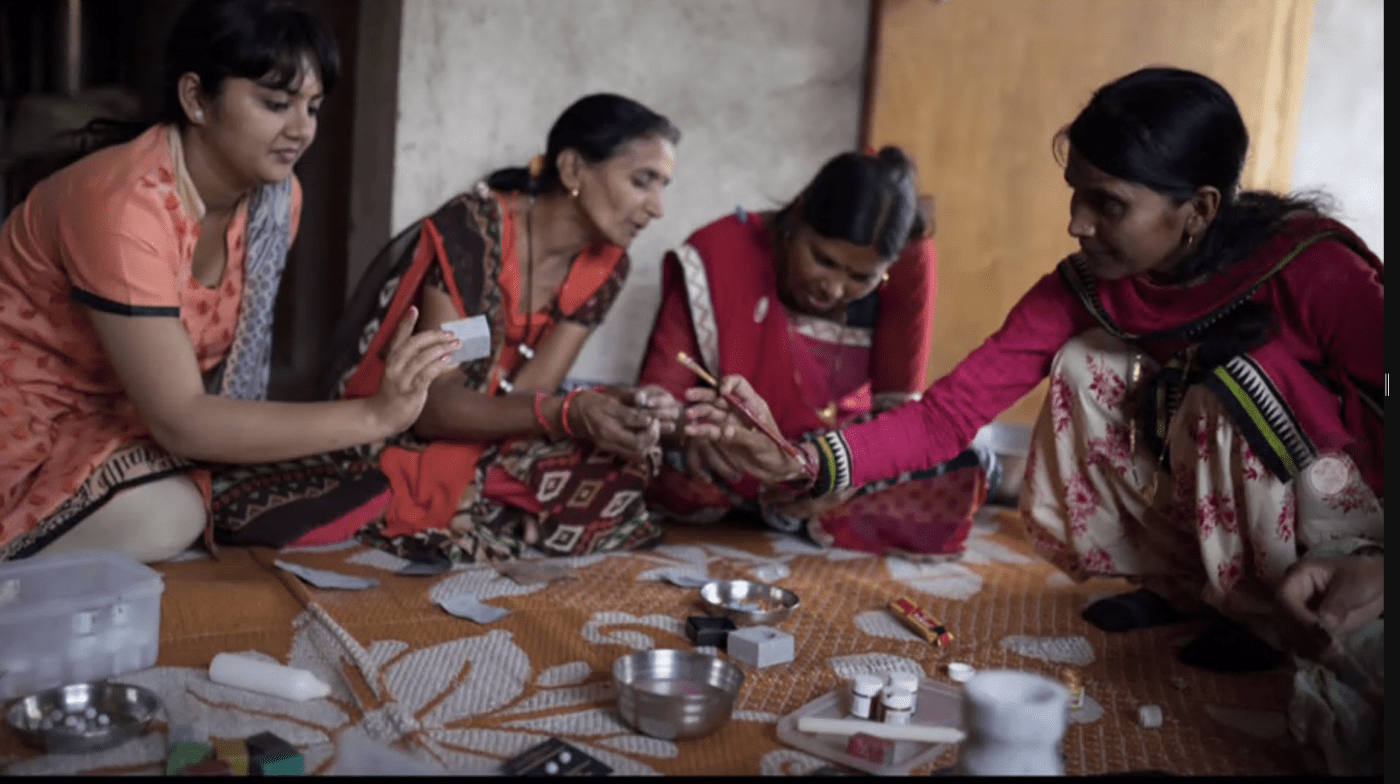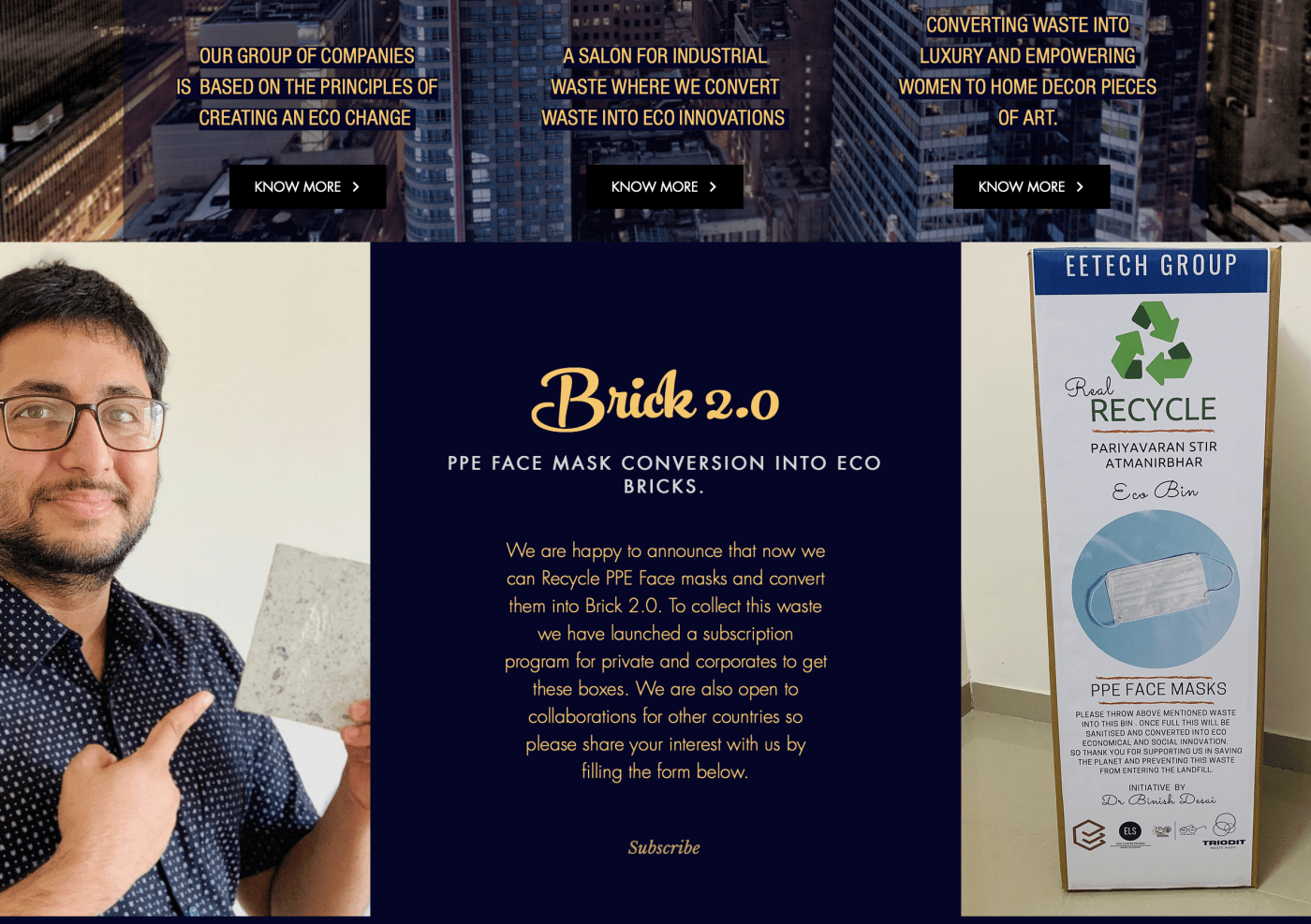India’s Recycle Man

India’s Recycle Man
Keywords: Sustainable economies, Circular Economy, Renew, recycle, reuse
Description
What do coffee grounds, used face masks, human hair, and multi-layer plastics all have in common? In most places they become garbage, but in India, Rotarian Dr. Binish Desai (RC Vibrant Valsad, India) has engineered ways to convert all of them into affordable, durable products, including bricks, jewelry, and home décor. These products are produced by previously impoverished women. “A major criterion is lifting up women from rural areas who had no say in their families, by bringing the work to them,” he explains. Read all about it here!
For Desai to launch a product, it has to satisfy a “triple bottom line: social, environmental, and economic,” he says. The production has to benefit the producers, divert materials from the waste stream, and combine excellent function with affordability. Desai’s products “are at least 15-20% cheaper than competing products, but not lower in quality,” he said in a Nov. 1 talk to ESRAG’s South Asia Chapter. For example, “a standing toilet built out of our bricks has reached 10 years in a village where things are not supposed to last.”
Rotary has been at the heart of Desai’s social entrepreneurship since he took part in Rotary Youth Exchange as a high school student and his host parents strongly encouraged him to pursue his dream of making useful stuff out of garbage. A founder of the Rotary Club of Vibrant Valsad, he sees Rotary’s network as a powerful resource for environmental solutions. A key part of his pipeline is collection boxes which Rotary Clubs can sponsor and label. Desai encourages Rotary Clubs to raise community awareness by recruiting industries, municipal associations, offices, and housing complexes to use the collection bins.
Desai’s Eco-Eclectic Technologies has a growing materials bank of wastes and resulting products. He has also developed an integrated system of waste segregation, collection, and production. Reality rules this practical dreamer: “If the cost of production is higher than the feasible price, we can’t compete.”
This is a fantastic example of circular economics, one of the types of projects that will become eligible for global grants in July under Rotary’s new Environment Area of Focus. Community organizing is as important as the engineering research. One example is Desai’s success in building a network of Eco-Salons across India which collect hair to be made into “eco-wood.” The products have a Mark of Trust that they are made of 100% zero waste, an increasingly valuable marketing asset for showing corporate social responsibility.
Desai has already won many awards, including being named one of Forbes’ 30 under 30 Asia in 2018 and being the youngest person to win the Rotary International Alumni Humanitarian Award for South Asia, but he’s not resting on his laurels. As Covid-19 swept across India, the mountains of discarded face masks “started giving me eco-anxiety,” Desai told the ESRAG South Asia Chapter in his Zoom talk Nov. 1. He quickly developed a process to disinfect masks and bind them with paper waste to make a brick that is cheap, strong, water resistant, and fire retardant. The new brick has been tested and approved by the Indian Government. Another is Desai and his wife’s swift response to the plight of Mumbai sex workers who had lost their livelihood in the pandemic. They recruited these women to start making lamps and clocks.
The picture below shows Dr. Desai’s newest eco-brick made of recycled masks (PPE) from the Covid crisis, and one of the recycling collection bins that Rotarians can sponsor and brand. Each kind of waste has specifically-labelled bins. To learn more and to contact Dr. Binish Desai, visit his website.


